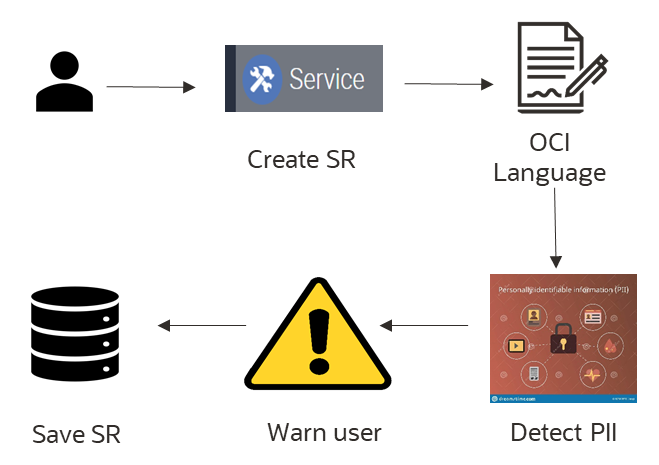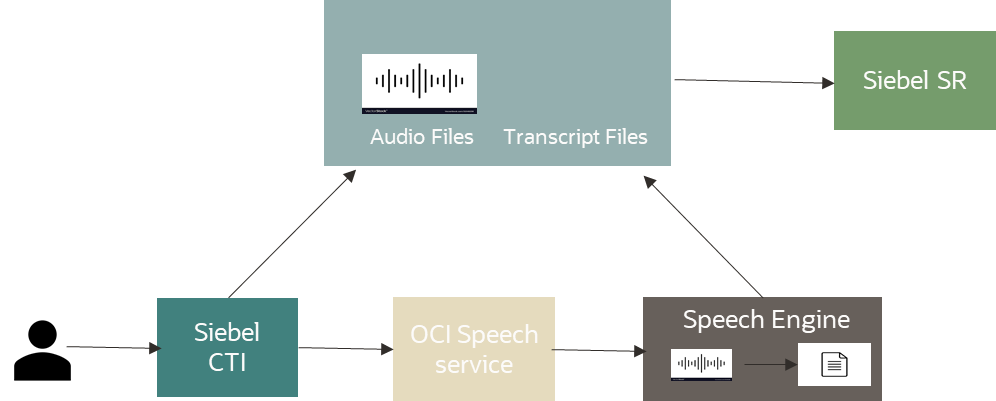In the world of Customer Relationship Management (CRM), today’s spotlight is on technology. Technologies have evolved from emerging to a reality. Artificial Intelligence (AI) is more than a buzzword—those that embrace AI will thrive and those that do not may struggle to maintain competitiveness.
Whilst potential business benefits made possible by AI are known to be significant, however, there are some stumbling blocks. Two specific problems restricting the use of AI are that businesses would capture data but not know when and where to incorporate AI and more importantly, implementation concerns ranging from a scarcity of data science expertise, to difficulties in building custom-trained models that understand business context.
Siebel CRM 22.10 addresses both these problems. The integration of Oracle Cloud Infrastructure (OCI) AI Services with Siebel CRM means that existing customers will have the flexibility to leverage out-of-the-box models that have been pre-trained on business-oriented data or custom training the services based on their organization’s own data whilst taking advantage of AI at a lower cost and in less time across a broad range of use cases. These services can be configured through out-of-the-box integration framework and caters to both Siebel CRM OCI customers as well as on-premises customers.
Using AI Services to simplify your work
Oracle Cloud Infrastructure (OCI) AI Services help developers with a range of complex tasks from language to computer vision, and time-series forecasts. The fully managed AI services include:
- OCI Vision: Provides pre-trained computer vision models for image recognition and document analysis tasks
- OCI Anomaly Detection: Delivers business-specific anomaly detection models that flag critical incidents, resulting in faster time to detection and resolution
- OCI Forecasting: Delivers time-series forecasts through machine learning and statistical algorithms without the need for data science expertise
- OCI Data Labeling: Helps users build labeled datasets to train AI models
Ready-to-use AI Services is making operationalizing AI easier
Oracle is making AI accessible to everyone with OCI AI Services. In this blog post, we are going to outline the ones we think will be more helpful as you get started on your AI journey:
- OCI Language: Allows customers to uncover insights in unstructured text in documents, customer feedback interactions, support tickets, and social media using natural language processing (NLP)
- OCI Speech: Applies automatic speech recognition (ASR) technology to transform audio-based content to text and makes it possible to transcribe customer calls for easy search and retrieval of information
OCI AI Services is a versatile service and here are three ways to easily get started:
- Usage via Siebel Application user interface (UI)
- Usage via direct Siebel REST API
- Usage via Siebel custom components like workflow/business service/business component
This architecture diagram shows what a typical flow to access OCI AI Services looks like:

Siebel CRM
- Client (user/external app) invokes Siebel OCI AI Services
- Siebel OCI AI Services checks if the system preference is enabled and internally invokes the Siebel REST API
- Siebel OCI AI REST API can also be directly invoked via any Siebel component like workflow or via any external self-service application layer
Oracle Cloud Infrastructure (OCI)
- Siebel REST API does the required pre-processing, authenticates with OCI, and invokes the OCI AI Service via OCI Java SDK to get the required response using AI/ML
- Post-processing is done and the required response is returned to the client
- OCI AI Services also uses OCI Object Storage for certain use cases especially for Speech
Use cases for AI
Language and Speech is one of the most operationalized and most enterprise-practical aspects of AI. For existing Siebel customers starting out on their AI journey, integration with AI Services provide a useful way to gauge how valuable artificial intelligence can be for their organization for minimal outlay. Please note that this is not a definitive list of use cases.
Identify and flag personally identifiable information (PII) in the service request (SR)

Most often, it is too time-consuming to manually analyze large amounts of textual data in the service request (SR). OCI Language reduces this time and effort by scanning the entire ‘description’ field in the SR to identify significant entities. You can use OCI Language to identify personally identifiable information (PII), such as phone number, email address, mailing address, or URL, and warn call center agents prior to saving. It can be easily extended to any Siebel business component. For example, ‘comment’ field in the quote business component. However, currently only one field per business component is supported.
Apart from this, OCI Language can address common use cases such as:
- Sentiment Analysis: Helps extract the sentiment of individual aspects in the text and classifies results as positive, negative, and neutral
- Key Phrase Extraction: Quickly identifies the most salient key phrases in your documents
- Text Classification: Analyzes the input text and classifies into a set of categories
Transcribe customer calls and attach the text file to the service request (SR)

OCI Speech handles low-fidelity audio recordings and transcribes challenging recordings like meetings or call center calls. Using Speech, you can turn media files into accurate, normalized, and timestamped text to detect sentiment. With OCI Speech, users can save the transcription to the SR, and use it for content search and analysis. We currently support file-based asynchronous transcription, and only one audio file can be transcribed at a time.
Oracle continues to expand and evolve our AI Services for Siebel CRM in a way that suits your business needs, today and tomorrow. Siebel customers can discuss their requirements and business use cases with their Oracle representative. Technical details of the integration are available in Oracle iLearning.
Authored by Venkat Ramana Bhat, Senior Principal Product Manager (Oracle Siebel CRM)